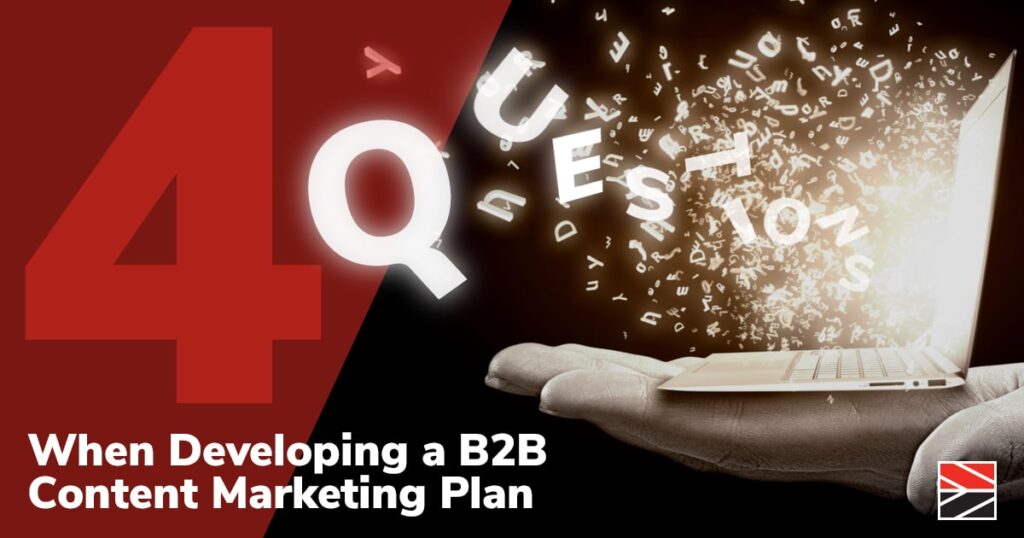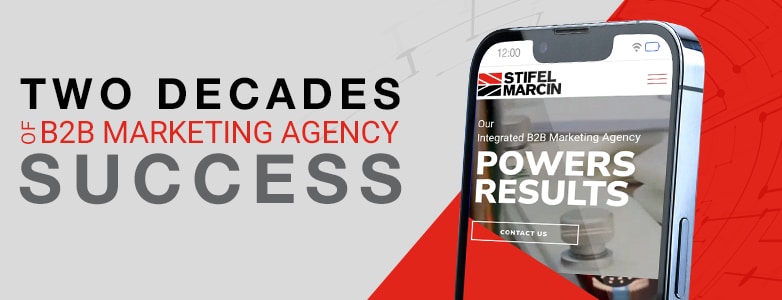Four Considerations When Developing a B2B Content Marketing Plan
As digital information has become a part of our everyday lives – the average person spends more than 8 hours a day in front of a screen – having a strategic B2B content marketing plan is more important than ever. The art of creating compelling messages that spur customers to act requires knowing what to say, how to say it and where your messages should appear. If you are developing content without a strategic B2B content marketing plan, here are four thought-starters to consider. What Are Your Objectives? Start your process by clearly defining goals and map your B2B content marketing plan to meet those objectives. Are you aiming to grow brand awareness? Perhaps your main goal is lead generation. Customer retention may be number one on your list this year. Likely it’s a mix. Who is Your Target Audience? Your organization may have one or many audience targets you wish to reach. Your content should be tailored to suit the needs of each of those audiences. Take the time to develop detailed audience personas and craft content suited to meet their needs. What problems do they need help solving? Keep your target audience top of mind each time you are writing a piece of content. What Makes You Stand Out? In a crowded marketplace, understanding what makes your brand unique and weaving that story into your content is key. Why is this content you’ve created something a reader can trust? Great content that provides value to the reader and doesn’t spam them with sales pitch after sales pitch is paramount. Look at your competitor’s content. Chances are, there are many instances in which you’re both providing similar information. Determine how you can best deliver words and visuals that inspire action and brand loyalty. Have You Conducted a Content Audit? This is an important but often overlooked step. Look at your current arsenal of content. Are your blog posts crafted with search engine optimization (SEO) in mind? Take the time to look at performance metrics of your blog posts, social media and emails. A successful audit will provide insight into content that is both performing well and opportunities for improvement such as stronger keyword targeting, updating outdated content and increasing engagement. Turning Content into Results The right marketing can take your business to the next level. But building, executing and monitoring a strategic B2B content marketing plan takes resources and time. Our B2B content development agency is here to help. With careful research and understanding of your organization, we craft B2B content that helps your brand stand out and provides value to current and potential customers alike. Fill out our contact form and let’s talk. Stifel Marcin – The B2B Marketing Agency Unlike many advertising and marketing agencies, B2B isn’t just something that we do, it’s all we do. We’ll work to help your brand achieve its goals through the strategic combination of creativity, communication and technology. Our focused client intake processes give us the ability to thoroughly understand your business, products and objectives, working to identify the competitive advantages and opportunities that will grow awareness, leads and sales. We develop innovative marketing plans with strategic, data-driven processes, presenting complex ideas and compelling messages that position your business ahead of the competition. As your cooperative partner, our integrated B2B marketing agency is dedicated to your success. Our content development agency team creates compelling messages that inspire the right target customers to act. Contact us today.
Four Considerations When Developing a B2B Content Marketing Plan Read More »




